All About Glass Block Floor | Glass Block Floor | Advantages of Glass Blocks | Disadvantages of Glass Blocks
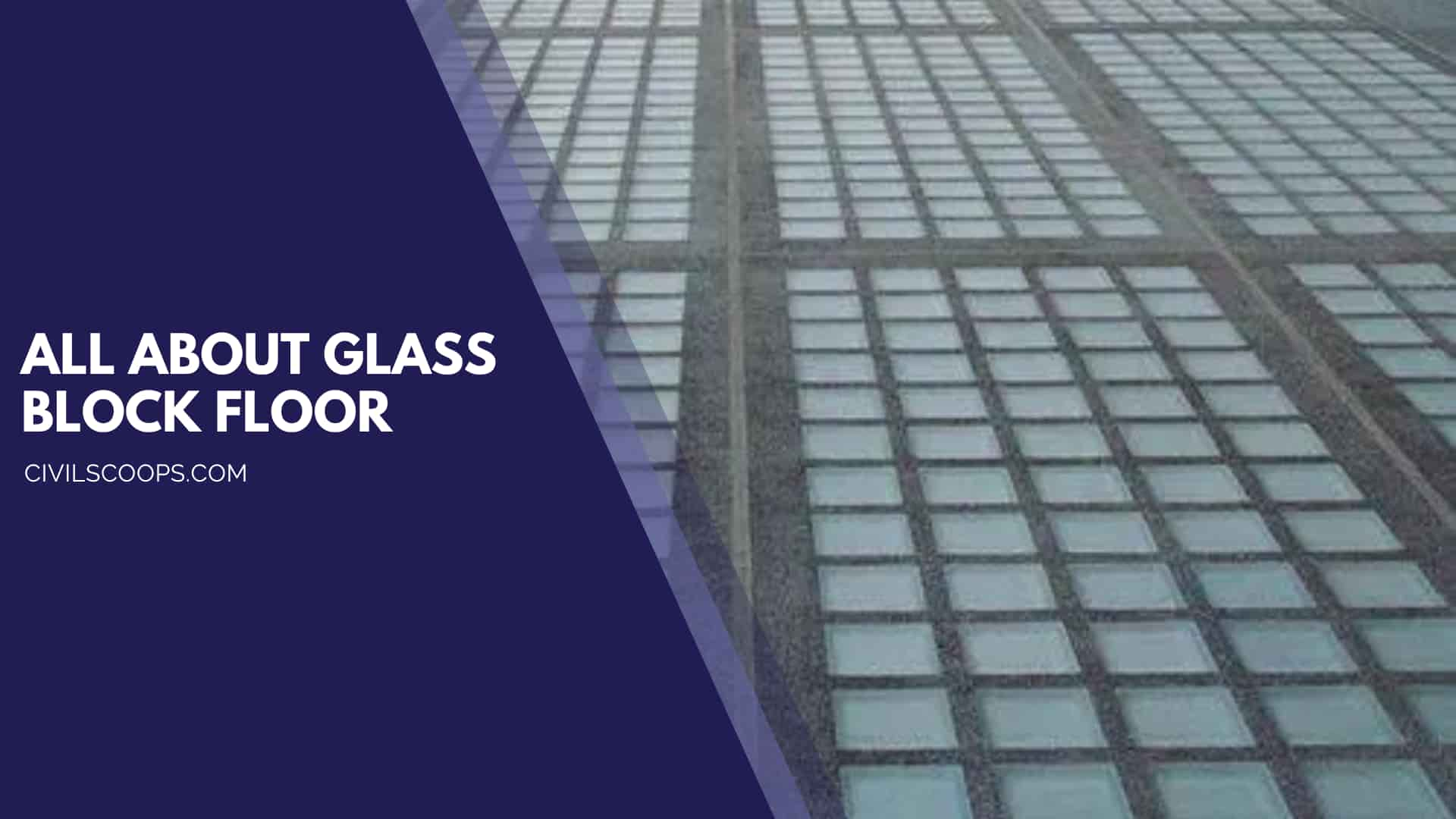
Table of Contents
Introduction of Glass Block Floor
Glass blocks are one of the unique construction materials which were developed in 1900. The main function of the Glass block is to provide the natural light of the sunlight.
Glass blocks are generally made smaller and significantly thicker. Glass blocks are also known as glass bricks. Glass block is widely used in the construction of residential as well as commercial buildings.
The glass blocks can be hollow or solid and come in different sizes and dimensions. The selection of the glass block depends upon your requirements.
The texture of the glass blocks can vary to provide a wide range of transparency. Glass blocks can provide light and can be used as a decorative material to an Architectural structure. Hollow Glass blocks are non-load bearing and cannot be used for load-bearing construction.
In this article, you will get to know all about Glass blocks, the types of glass blocks, and the advantages and disadvantages of glass blocks.
Glass Block Floor
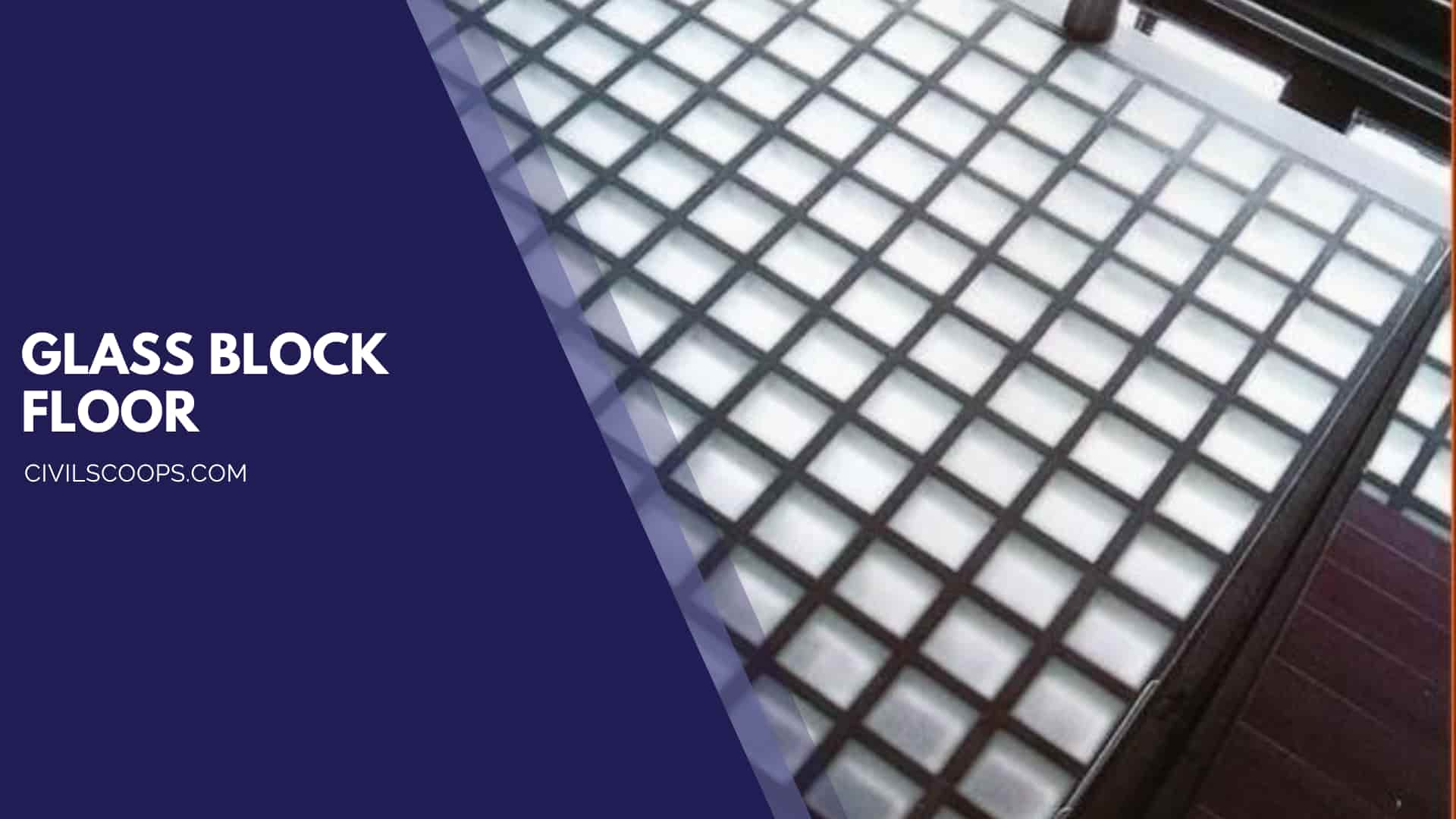
Glass block is the most commonly used for the Construction of transparent or translucent walls, but it is also used on floors. Glass-block floors are not economical, but they have extremely strong and scratch-resistant properties.
Glass Blocks used in flooring are different from those blocks which are used in walls. They have a smooth top surface and an irregular bottom.
Glass block floors are generally installed as panels with an array of blocks that are held together by reinforced mortar. The panels rest on columns from the surrounding structure.
Glass-block panels are also used in the drop ceilings. Lighting can be installed above the panels which give an aesthetical look.
Glass block floor panels will not generally fit in between existing floor joists, the joists must be cut and a support frame built into the floor. Glass block panels are extremely heavy which is about the 4-foot-square panel can weigh up to 300 pounds.
The glass pavers should be designed to be used as flooring material. The glass block stocked in home centers for use in windows and walls does not have the proper strength for flooring applications.
Advantages of Glass Blocks
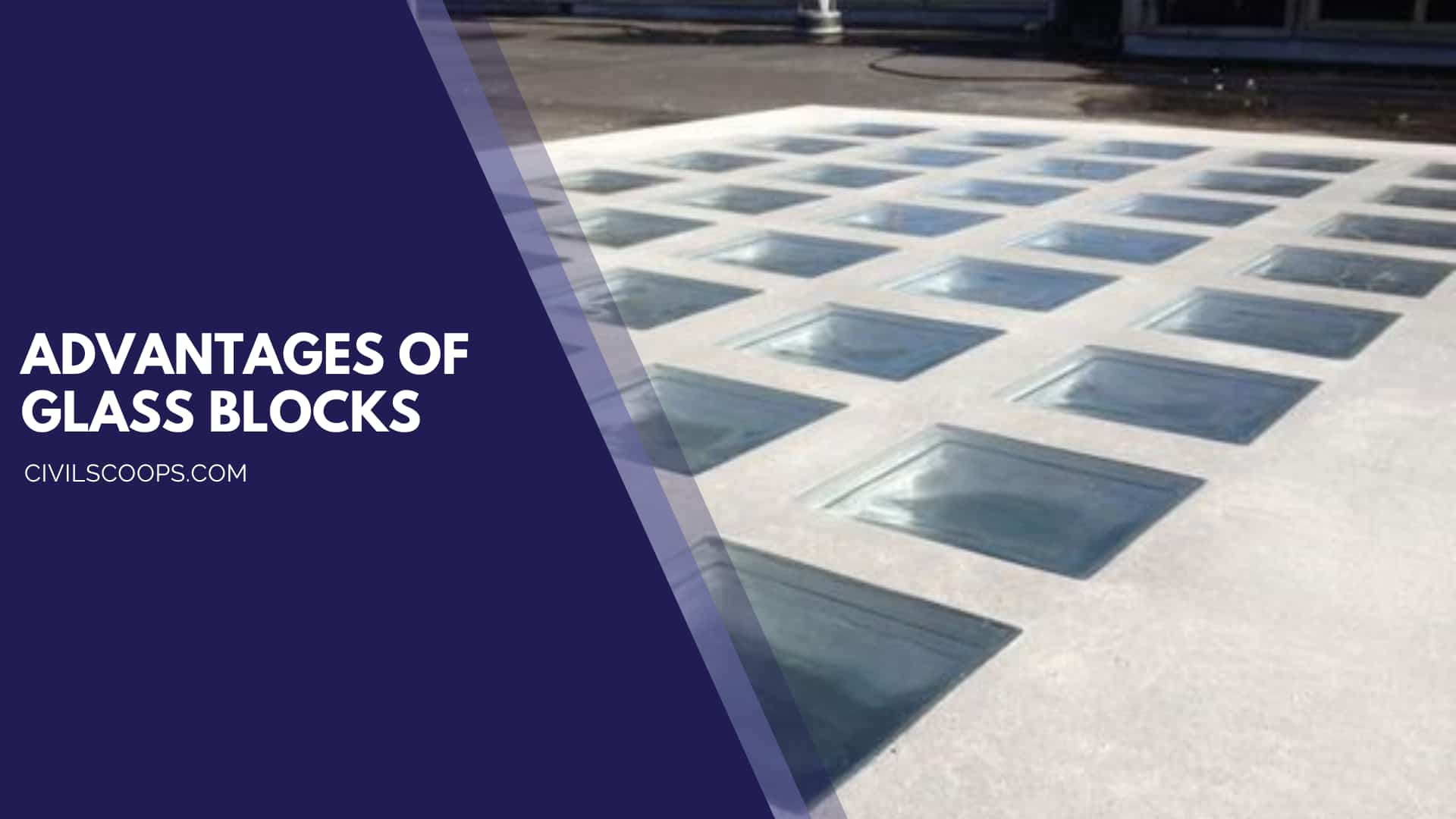
There are various advantages of Glass blocks in construction are as follows
- Glass blocks are available in a wide range of options with a variety of colors.
- Glass blocks provide good thermal and sound insulation.
- Glass blocks enhance the architectural beauty of the structure.
- Glass blocks provide natural light to cross through them.
Disadvantages of Glass Blocks
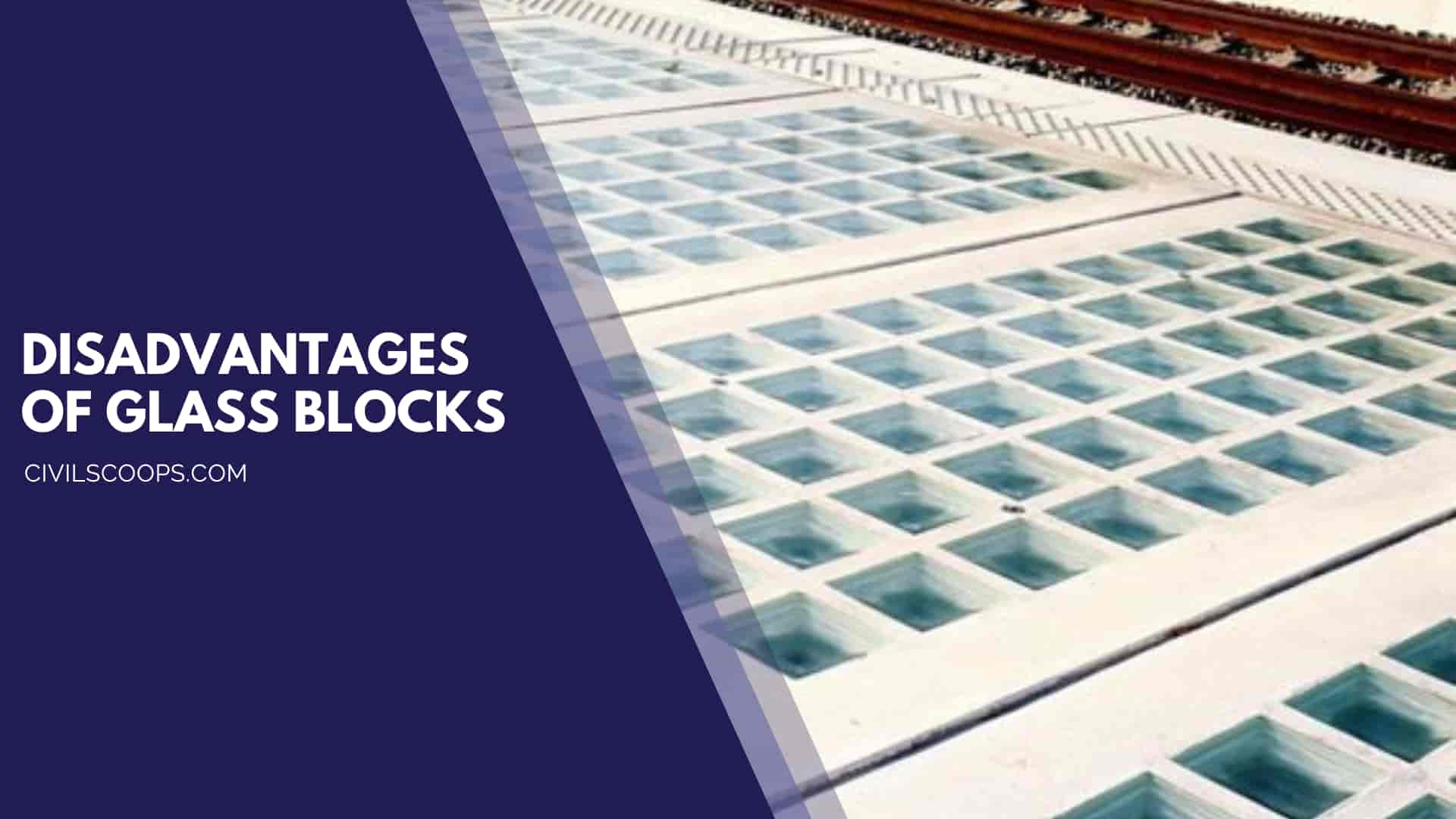
The disadvantages of using glass blocks in the construction are as follows
- The use of glass blocks is not suitable for Earthquake-prone areas.
- There may be chances of getting corrosion due to the alkali solution.
- Glass blocks are brittle.
- Manufacturing of Glass blocks required high energy consumption due to which high temperature is required for its production.
Uses of Glass Blocks
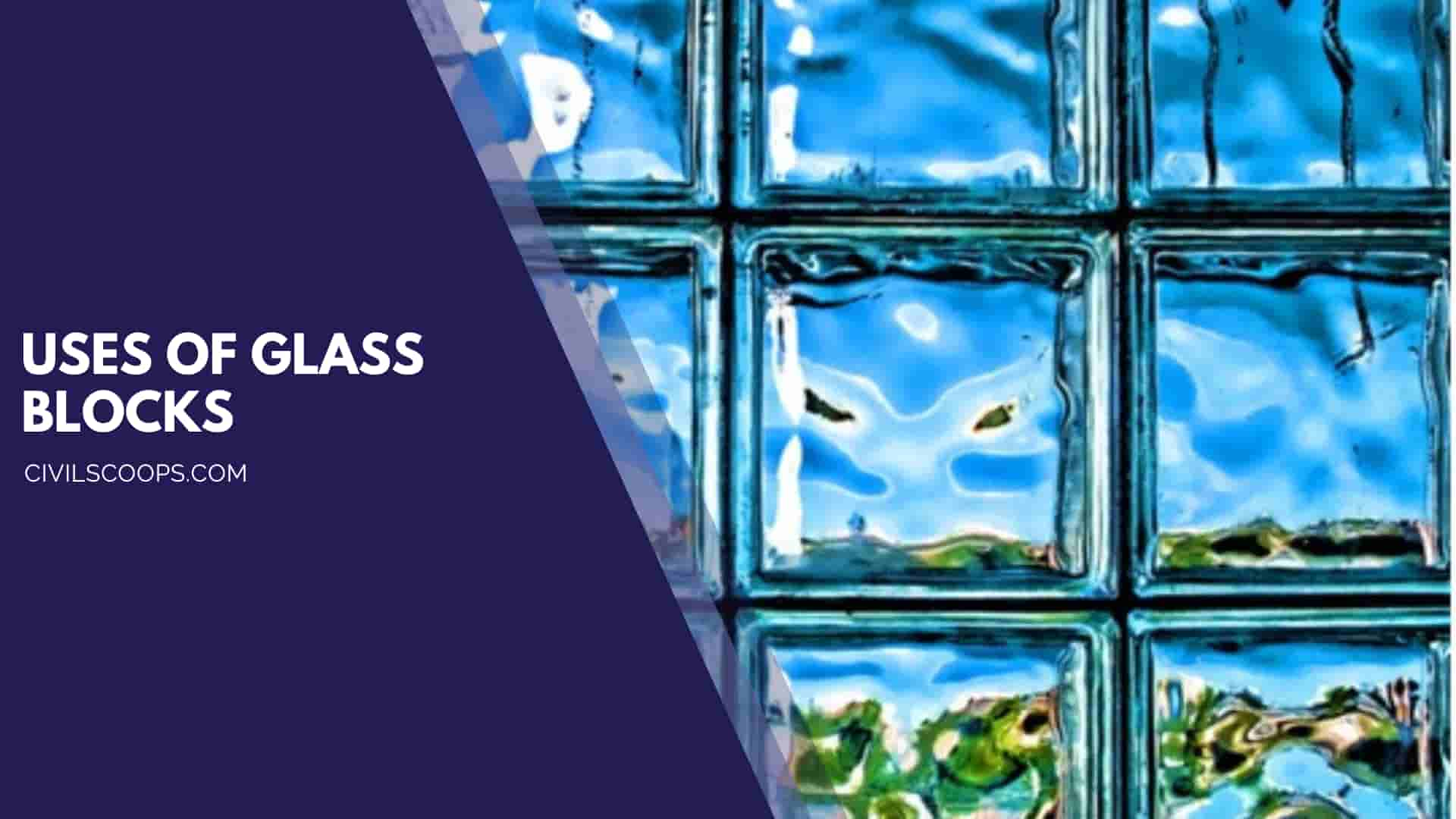
There are various uses for Glass blocks
- Glass blocks are used for wall cladding on the exterior of the buildings.
- Glass blocks are widely used in the interior decoration of residential as well as commercial buildings.
- Glass block wall panels are used in the bathrooms which help to accept light in the bathroom.
- Glass blocks are used in the windows.
Also Read: 15 Different Types of Cement and Their Uses
Types of Glass Block
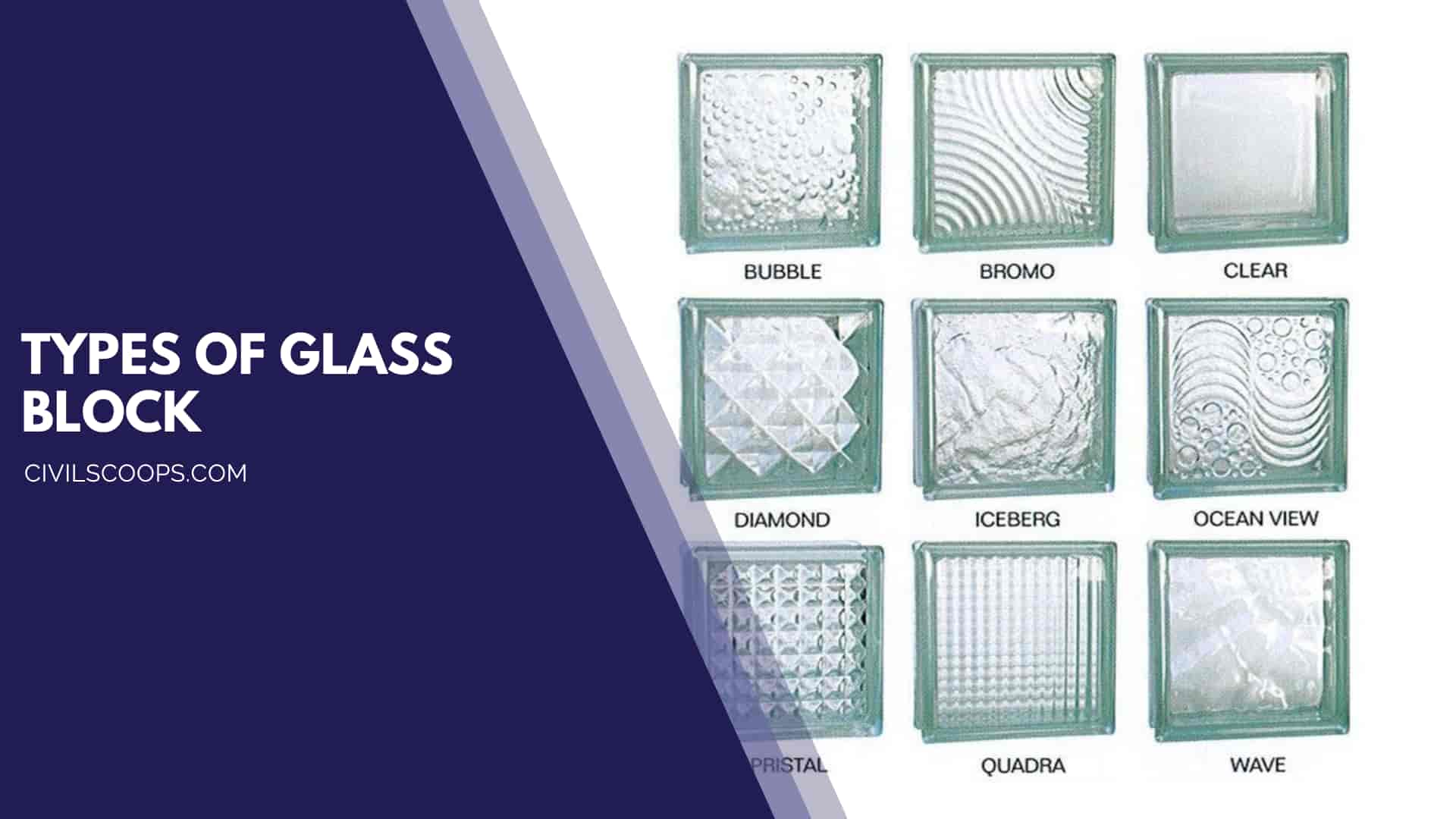
There are various types of glass blocks are available in the market which are as follows
- Hollow Glass Block
- Wavy Glass Block
- Ice Glass Blocks
- Diamond Glass Blocks
1. Hollow Glass Block
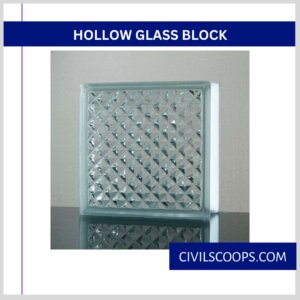
Hollow glass wall blocks are manufactured as two separate halves and, while the glass is still molten, the two pieces are pressed together and annealed.
The resulting glass blocks will have a partial vacuum at the hollow center. Glass block walls are constrained based on the framing in which they are set.
2. Wavy Glass Block
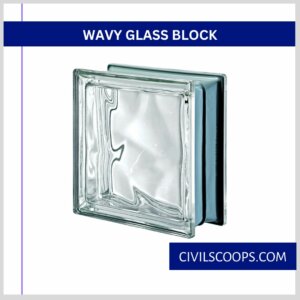
The baby class blocks are a special type of block which has unique patterns that allows light to flow as well as also provide privacy.
The wavy glass blocks are widely used in the windows which are common for basement home windows.
3. Ice Glass Blocks
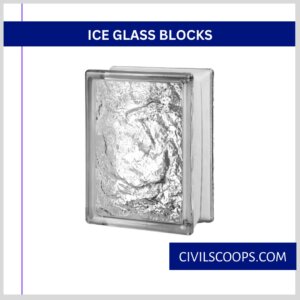
Ice glass blocks come with a frosted pattern and are generally used in bathrooms.
4. Diamond Glass Blocks
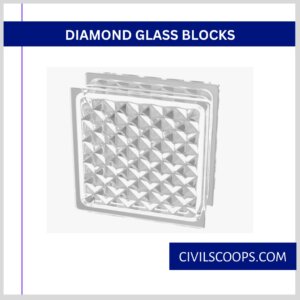
Diamond glass blocks of this type offer maximum privacy as they refract and disperse light throughout any room in which it’s installed.
Glass blocks are available and manufactured in various types of textures, colors, and shapes which allow for the construction of a variety of walls.
Also Read: What Is Sealing Brick Work| Advantages of Brick Sealer | Types of Brick Sealer
Glass Block for Windows
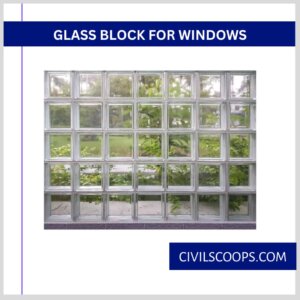
Normally the windows are constructed with the help of conventional materials which does not allow light to enter the structure when the windows are closed.
Glass block windows are a special material that is widely used to let sunlight enter the room. Glass block windows help to improve the architectural beauty of the structure.
Glass block Windows are the most popular type and are widely used for basement windows. Glass block windows are commonly used in home design, especially in bathrooms.
Glass block Windows provide the best thermal insulation which is similar to double pane windows.
Benefits of Glass Block Windows
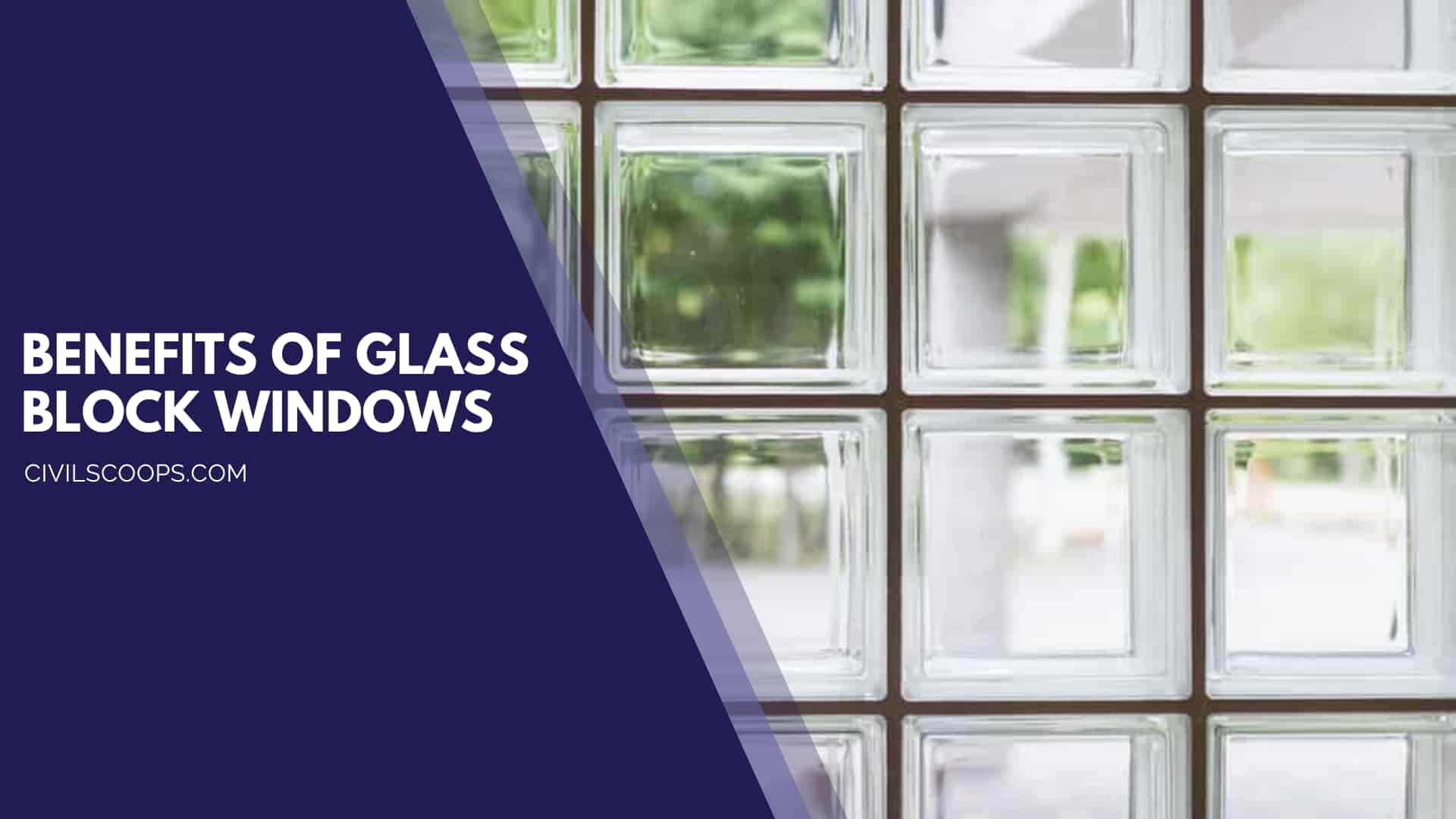
There are various benefits of using glass block windows in the building.
- Higher Energy Cost Savings.
- Improved Security and Privacy.
- Reduced Maintenance.
Higher Energy Cost Savings
Glass Block Windows provide higher energy efficiency as compared to thermal pane windows. It also enhances heat control as well as minimizes noise and dust entry into the buildings.
Improved Security and Privacy
Glass Block Windows come in various types of sizes and textures. Generally, the glass block Windows have a thicker surface which helps to keep the room temperature in a controlled manner.
Reduced Maintenance
The Glass block Windows required very less maintenance as compared to other types of windows.
[su_box title=”FAQ” style=”default” box_color=”#333333″ title_color=”#FFFFFF” radius=”3″ class=”” id=””]
What Is Glass Block Floor?
Glass block flooring is used in many different situations, from bridge walkways and mezzanine floors to balconies, corridors, and public highways. They are most commonly used as pavement lights and glass lenses set into precast concrete as part of pavement construction to allow natural light into the space below.
Glass Block Floor
Glass block flooring is used in many different situations, from bridge walkways and mezzanine floors to balconies, corridors, and public highways. They are most commonly used as pavement lights – glass lenses set into precast concrete as part of pavement construction to allow natural light into the space below.
Hollow Glass Block
Hollow glass wall blocks are manufactured as two separate halves and, while the glass is still molten, the two pieces are pressed together and annealed. The resulting glass blocks will have a partial vacuum at the hollow center. Glass block walls are constrained based on the framing in which they are set.
Disadvantages of Glass Blocks
There are, however, a few disadvantages to using glass blocks. Because glass block condenses moisture in the air, the use of glass block windows in areas that tend to gather humidity is not one of their best uses. When the moisture condenses in the glass block, it can roll down and collect on the window’s frame.
Advantages of Glass Blocks
Glass block windows offer energy efficiency advantages, comparable with what thermal pane windows provide. They are usually sealed with mortar in the wall, eliminating the risk of air leakages. This enhances heat control, as well as minimizes noise and dust entry, which can help significantly cut your utility bills.
Uses of Glass Block
The glass block was originally developed in the early 1900s to provide natural light in manufacturing plants. Why we use glass blocks glass block is a versatile building material you can use for windows, stairwells, shower screens, paving, interior, and exterior walls the opportunities are endless.
Glass Floor Material
Glass floors are almost always made of laminated glass in one form or another. Often this will be either heat strengthened laminated glass or toughened laminated glass. Heat strengthened glass is roughly twice as strong as annealed glass, while toughened glass can be five times as strong.
How Much Do Glass Blocks Cost?
On average, they cost somewhere between $10 and $20 per block. Alpha glass blocks come in several different colors and are common in living spaces.
How Much Do Glass Bricks Cost?
Glass blocks are typically 8″ x 8″ x 3″ wide. Home Depot sells standard glass blocks for $100 for a pack of 8. Above average quality, shatterproof blocks may cost $10 to $15 per block.
How Much Does It Cost to Install Glass Block Windows?
The average cost for a glass block windows installation is $400 to $1,100 per window. You can order pre-built glass block windows and can assume the costs to be around $18 per square of glass block or $25 for frosted privacy window squares.
How Much Does a Glass Block Weigh?
[su_table responsive=”yes” alternate=”no”]
| Nubio Glass Block – 3″ Thick | Size (Nominal) | Lbs. Each |
| Intersecting random wave pattern, provides an attractive appearance and excellent privacy. Smooth exterior surface for easy cleaning. | 8 x 8 x 3 | 5.4 |
| 6 x 8 x 3 | 4.5 | |
| 4 x 8 x 3 | 2.9 | |
| 6 x 6 x 3 | 3.1 |
[/su_table]
Are Glass Bricks Strong?
In addition to being beautiful, the glass bricks are tough. They’re stronger than concrete, and are capable of withstanding the force of a car crash. The glass bricks are potentially an eco-friendly construction innovation too.
Disadvantages of Glass Blocks
Glass block windows are constructed in a way that doesn’t allow for ventilation, unlike most vinyl windows. If your glass block windows are in a bathroom or other room that experiences higher humidity levels, you’ll want to make sure you have alternative solutions to ventilate humid air out of your home.
Properties of Glass Blocks
Glass blocks permit natural light to pass through the space without compromising with privacy. Glass blocks are customizable. They provide good thermal and sound insulation. They are strong and provide safety.
Glass Block Properties
Discuss the unique performance abilities of glass block, such as fire protection, heat and light transmission, sound resistance, vandal resistance, and hurricane and earthquake resistance.
What Is the Uses of Glass Block?
Glass block have been used in police stations, subway terminals, schools, parking garages and gymnasiums, in addition to numerous private and commercial new construction and renovations. Consider some interior uses: as a contemporary shower stall, a kitchen island or backsplash, or as the sidelights at the front door.
What Are Glass Blocks Used for?
Glass blocks are most frequently used in wall fabrications (especially bathroom installations) and decorative windows, though they can also be used in flooring and some furniture building.
Are Glass Blocks Outdated?
Not at all. Though glass block became popular in the past, it has many benefits. it has long been used in homes to bring natural light and a feeling of openness to rooms yet maintain privacy, because of this glass blocks will never become outdated. Learn more.
Are Glass Block Windows Outdated?
While beauty is in the eye of the beholder, many current design experts, home decorators and architects agree that the look of glass block is outdated, unattractive and unnecessary. Some architects have argued that glass block is all too commonly relied upon as a crutch to cover up a poorly designed walkway or corner.
Can You See Through Glass Block at Night?
While lounging in the bathtub, you can get a reasonable amount of natural light filtering through an exterior glass block window, but it is impossible for anyone to look inside. Even someone who looks right up to the glass will only see vague images inside.
Uses of Ground Glass
Ground or frosted glass is widely used as a weather- and heat-proof light diffuser in ambient lighting, namely on glass covers or enclosures for lamp fixtures, and sometimes on incandescent bulbs. Its functions include reducing glare and preventing retinal damage by direct sight of the lamp filament.
Do Glass Block Windows Insulate?
A standard glass-block window has an insulating value about equal to a standard double-pane thermal window.
[/su_box]
[su_note note_color=”#F2F2F2 ” text_color=”#333333″ radius=”3″ class=”” id=””]
Like this post? Share it with your friends!
Suggested Read –
- What Is Soundness of Cement Test
- Difference Between Timber And Wood | What is Wood | What is Timber
- Stepped Footing | House Foundation on Slope | How to Build a Foundation on the Slope
- What Is a Low E Glass | Types of Low E Glass | Advantages & Disadvantages of Low E Glass
- What Is Varnish | Types of Varnish | Classification of Varnishes | Advantages & Disadvantages of Varnish | Application of Varnish | How to Apply Varnish to Wood
[/su_note]
Originally posted 2022-11-03 11:20:11.
